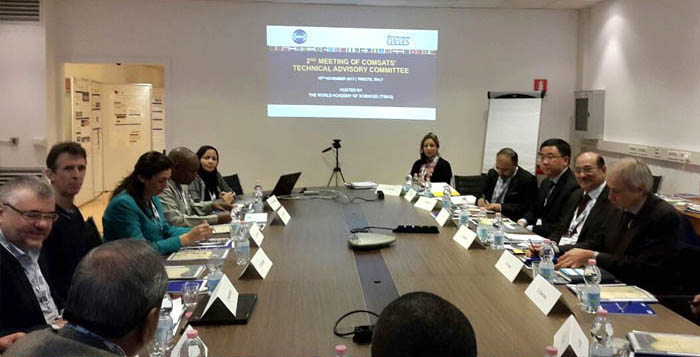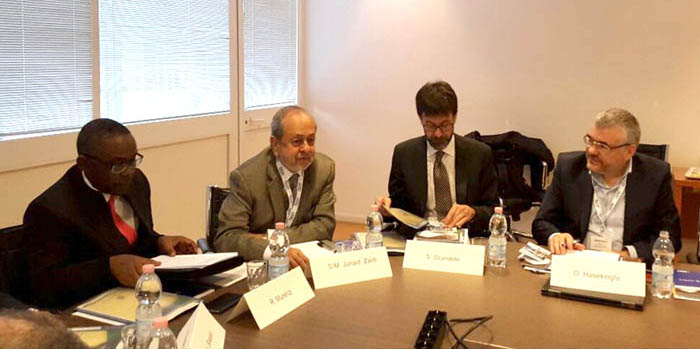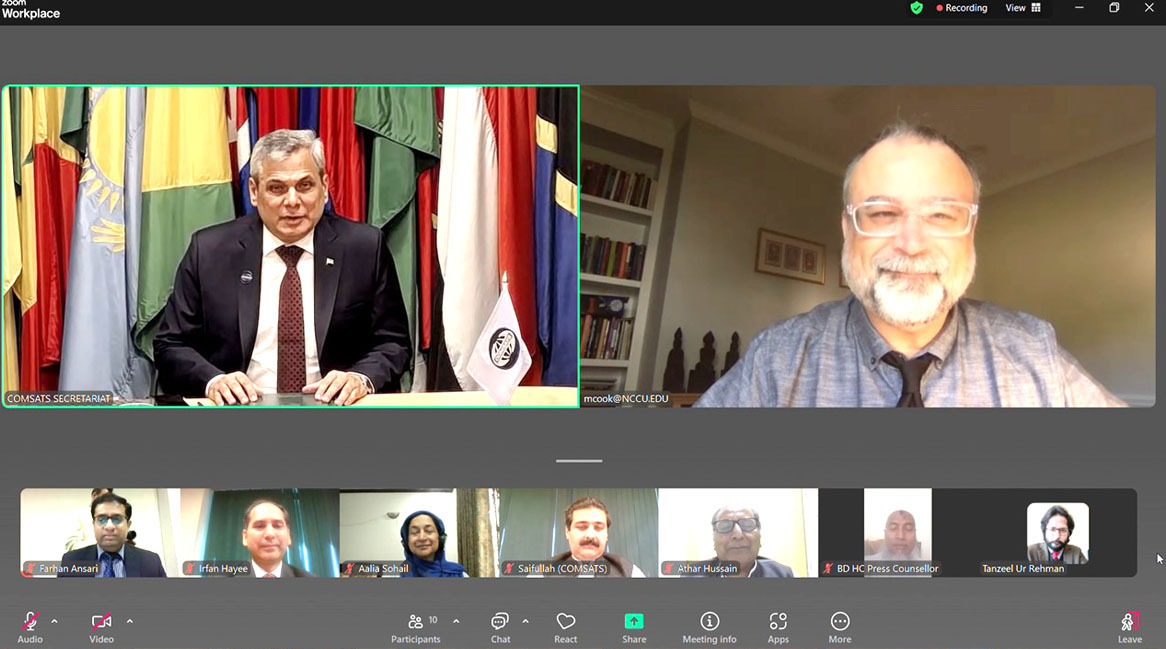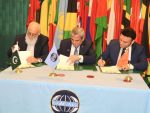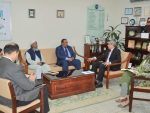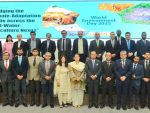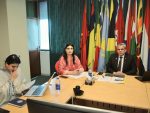The Commission on Science and Technology for Sustainable Development in the South (COMSATS) held the second meeting of its International Technical Advisory Committee on 15th November 2017, in Italy. The meeting was hosted by The World Academy of Sciences (TWAS) in the scenic city of Trieste.
The Committee Members met to give their intellectual inputs for the future direction and technical programmes of COMSATS based on a proposed agenda circulated by COMSATS Secretariat. The TAC members that attended the meeting were Dr. Sabah AlMomin, Kuwait; Prof. Huadong Guo, China; Dr. Jalila Ben Salah Abbes, Tunisia; Prof. Dr. Yin Li, China; Prof. Sahalu B. Junaidu, Nigeria; and Prof. Dr. Amal Al-Aboudi, Jordan; while the following two joined through video-conference: Dr. Richard Catlow, United Kingdom; and Prof. Dr. Sok Ching Cheong, Malaysia. The meeting was also attended by the Heads of COMSATS’ Centres of Excellence in Egypt and Turkey. Representatives from other International organizations based in Italy, i.e. the International Centre for Theoretical Physics (ICTP) and the International Centre for Genetic Engineering and Biotechnology (ICGEB) also attended the meeting.
Speaking for the host organization, Prof. Dr. Romain Murenzi, Executive Director TWAS, recalled that Trieste is the very place where the idea of establishing COMSATS was conceived by Prof. Dr. Abdus Salam in the early 90s. He stated that COMSATS and TWAS share the goal, which is to work towards building scientific strength for sustainable development in the South. He stated that scientific expertise is key to tackling many of the great challenges that humanity is facing today. Therefore, it is more important than ever before to establish good networks for exchange of ideas and collaborations. To this end, Prof. Murenzi hoped that COMSATS and TWAS will continue to collaborate for building scientific capacity of the developing countries, focusing especially on issues and challenges related to the sustainable future of human kind.
The Executive Director COMSATS, Dr. S. M. Junaid Zaidi, regarded the Technical Advisory Committee as the brain of COMSATS, and considered this meeting highly important for determining the way forward for the organization. He expressed the need for the countries of the South to improve their institutional arrangements, build critical mass of human capital, and enhance technical capacities, in order to attain research, innovation and technological progress. In this regard, Dr. Zaidi highlighted the fact that COMSATS and UN are the only two inter-governmental organizations that have a university of their own. He informed the participants regarding the scientific capacity and human resources available at the COMSATS Institute of Information Technology (CIIT), which is one of the finest universities in Pakistan. He also highlighted the key role of TWAS in the establishment of COMSATS, and considered its advice highly important.
The agenda of the meeting inter alia included introduction to COMSATS and its International Network of Centers of Excellence, Role of TAC in developing policy framework, Enhancing South-South-North Triangular Cooperation, Challenges in Achieving Sustainable Development Goals, and Expanding COMSATS membership and expanding the Network of International S&T Centers of Excellence.
During the discussions, the Technical Advisory Committee members were pleased to note that the membership of the organization is increasing, with Federal Republic of Somalia and Republic of Turkey being latest additions as Member States. They encouraged COMSATS Secretariat to facilitate the expansion of the Network through induction of renowned R&D Centres from the South and the North. TAC also advised to facilitate the upgradation of existing Centres of Excellence through financial and technical support from international donor and development organizations, as well as to establish new Centres of Excellence to promote research, education and training in cutting-edge themes of science and technology. The TAC members encouraged COMSATS to initiate new programmes and projects, which are of significance in achieving the Sustainable Development Goals (SDGs), for the benefit of the Member States. The Centres of Excellence were urged to prepare joint research proposals for possible funding by international donor and development agencies. In view of the emerging trends in global partnerships, COMSATS was advised to facilitate the South-South-North Triangular Cooperation in science and technology.
The next (3rd) meeting of COMSATS Technical Advisory Committee is expected to be held in conjunction with the 21st meeting of COMSATS Coordinating Council in Almaty, Kazakhstan, in April 2018.

